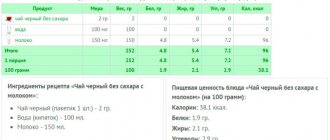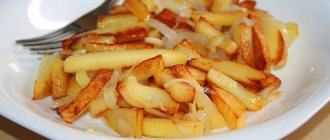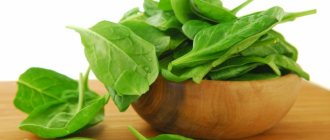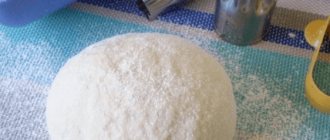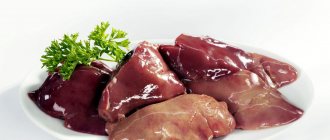For most women, pregnancy and childbirth are real challenges. But the greatest fun comes when we come home with the child. We need to feed the baby, bathe him, rock him to sleep, and go up to him at the first call.
A woman who has recently given birth and is already pretty exhausted begins to become depressed and critically evaluate her own maternal abilities and her appearance. Most often, women are upset by their appearance. They get tired of being in the image of a bun, and the ladies are trying to find out the secrets of harmless weight loss for nursing mothers. Let's look for them together.
How the body gets rid of excess fat
Each organism is individual. But nature inherently requires procreation, so the physiology of mothers’ bodies makes sure that a woman always appears beautiful and desirable to a man. When breastfeeding, the body of a nursing woman itself rids her of the fats accumulated during pregnancy.
This does not affect the quantity and quality of milk. Some mothers immediately after giving birth begin to lose weight, go on low-calorie diets, and the baby’s milk is quite fatty. Others, on the contrary, eat right, but the milk is watery. Still others eat a lot, the milk is fatty, and the baby does not gain weight. In each specific case, you should look for the reasons together with the observing doctor.
Pediatricians say that when breastfeeding, not only does the woman lose weight faster, but the child is also at a normal weight for his age. Maybe artificial children look like plump angels, but their weight is much higher than the normal allowable weight.
In a nursing woman, until the menstrual cycle is restored, hormonal changes delay the return to a slim figure. At the same time, the lactation process normalizes the mother’s metabolism, burns excess fat, and promotes the loss of weight gained during pregnancy. Therefore, breastfeed as much as the mother’s body and the baby’s appetite allow. Restoration of the previous size will occur due to the physiological work of the body gradually, over 8-9 months.
For many mothers, such physiological weight loss is the optimal solution. After all, switching to strict diets forces the body to accumulate excess fat to replenish missing calories. Or your appetite increases, which in this case is not entirely useful.
Only a varied, balanced menu that delivers the necessary vitamins and microelements to the body reduces appetite and cravings for sweets, flour and fatty foods. Such a diet tells the body that it is safe, and the body stops protecting itself with fat deposits.
Updated medical sources of information indicate that mothers should not refuse anything, much less allow themselves a complete shortage of one or another product. It's better to eat everything, but little by little
Proper nutrition during pregnancy
PP during breastfeeding, of course, has a lot of its own characteristics, which is not surprising, because the female body is also actively involved in milk production and this cannot but affect the nutrition and energy consumption of the body. So, what do you need to know about the rules of proper nutrition for a nursing mother?
Your diet, first of all, should be varied. Under no circumstances should you suddenly give up a certain group of foods in order to quickly lose weight. Nutrition must be balanced so that the woman’s body receives the necessary vitamins and minerals. Your diet must include the following products:
- lean meats. Excellent for veal, beef, rabbit, and turkey. You can include chicken in your diet with some caution, as this meat can sometimes cause allergies.
- fish. Give preference to red fish, it is richer in Omega 3 polyunsaturated acids. It is also good to include white fish in your diet, especially low-fat varieties.
- cereals Feel free to include buckwheat, bulgur, oatmeal, and rice in your diet. From them you will receive slow carbohydrates, which are necessary to maintain energy.
- dairy products. Let's not forget about dairy products. The diet should include cottage cheese, kefir, milk, cheese. It is not necessary to include low-fat dairy products in your diet. So, 5% fat cottage cheese is perfect.
- Vegetables and fruits. Don't forget about vitamins. The diet should include vegetables and fruits. By the way, vegetables do not have to be eaten fresh; you can bake or stew them. It is best to include seasonal vegetables in your diet.
- Bakery products from durum wheat. Replace regular bread with whole grain bread. By the way, the same applies to pasta. Today there is a large selection of pasta made from durum wheat.
What is pp nutrition
If everything is clear with permitted foods, then it’s time to talk about what is best to exclude from your diet, at least temporarily:
- smoked products and canned food. During the period of proper nutrition and guarding, we exclude various canned food, sausages and meat products from our diet.
- Legumes. When feeding a nursing mother properly, it is better to avoid legumes; they contain a lot of fiber and can cause colic in the baby.
- Fresh vegetables such as cabbage, radish, radishes, fresh onions, garlic. These vegetables also increase intestinal motility and can cause colic. But you can watch the baby's reaction. It is quite possible that fresh cabbage salads in small quantities will not have any consequences.
- Fatty foods. It is better to avoid any very fatty foods. This applies not only to fatty meats, for example, but also to fatty cheeses.
- It is better to replace fried foods with boiled, stewed or baked ones.
- Exotic fruits. If you haven’t tried such fruits before breastfeeding, then the lactation period is not the best option for experiments.
- Sweet carbonated drinks, packaged juices. Such drinks contain a lot of empty calories and minimal benefits.
Why doesn't the fat you gain go away?
The female body tries to remove fats that protected the embryo during pregnancy. If there are no pathologies, almost all women lose weight due to lactation and restoration of hormonal levels. When the baby grows up and stops feeding on breast milk, and the mother is unable to lose weight, look for a solution to the problem together with your doctor.
But there are problems of a psychological nature when the mother often has to be nervous when there is trouble in the family. Imbalance, depression, depression, bad mood prevent the body from working correctly. This delays the release of unnecessary fat and the return to a slim figure.
We recommend reading: Hypoallergenic diet for a nursing mother
If you constantly think that your old beauty will not return, you are afraid of remaining “fat” forever, your psychosomatic state and hormonal levels will change in a negative direction. Then the most proven or newfangled diets will definitely not help.
Sometimes strict or mono-diets cause sudden weight loss. When such a diet ends, weight increases sharply. The woman returns to the diet again, loses weight again, then gains it, etc. Such jumps acquire the position of a repeating circle. The composition of milk changes, hormonal levels are disrupted.
Another problem with losing weight is refusing to feed the baby, which causes a disruption in hormonal activity designed for milk feeding.
Or, conversely, when breastfeeding for too long (more than 2 years), when there is no need for breastfeeding, little energy is spent on milk production, and some mothers do not reduce the caloric content of food.
Cesarean section and birth pathologies cause excessive formation of a fat layer to protect the mother in labor from illness.
Learning from mistakes
A number of women do not believe that by adhering to a regular diet for a nursing woman, you can lose excess weight. They say they tried to eat normally during pregnancy and still gained weight. This means that more radical measures need to be taken. Do you think so too? Just don’t try to go hungry, if, of course, you love your child.
As for severe weight gain during pregnancy, this most often happens to those women who have the following beliefs:
1. “I’m pregnant, and I can do anything. I eat what I want, because I can’t be upset. When carrying a child, you need to experience only positive things. I won't embarrass myself. Once you get pregnant, then you’ll understand.”
2. “Yes, I really need sandwiches with sausage, mayonnaise, with crumbled sausages on top, smoked fish, decorated with whipped cream and drizzled with chocolate. Harmful? And what? I’m not doing it for myself—it’s the child asking for it! What, you called my food disgusting? You said that the sandwich your child wants is a culinary perversion? Bastard!
3. “Now I need to eat for two. I want to have a healthy and cheeky little one. What if he's starving? That’s it, I’ll eat even more.”
Well, the baby is born - you can forget about your madness. Now you understand that many of the not very healthy foods eaten were consumed only because the mother wanted it, and not the baby. And the newborn baby, as it turns out, reacts to all sorts of sandwiches and sweets with allergies and colic. Now you need to give up the third mania - although there are healthy foods, they are in huge quantities. There is no need to eat for two or four people either during pregnancy or after the birth of a child.
How many calories do nursing mothers need?
A balanced, healthy, vitamin-rich diet for a nursing woman is the basis for a mother’s normal weight and well-being. Don't stress too much about calories because feeding requires more food. Breastfed babies need to eat delicious fatty milk. But for the lactation process, nursing mothers spend no more than 500-600 kilocalories per day. To calculate how many calories mom needs to avoid overeating, add calories for lactation to the norm.
Using the Muffin-Jeor formula, we calculate the daily calorie intake.
Calculation of Basal Metabolism to ensure the vital functions of a person at rest. For women, the formula is as follows: weight in kg x 10, add height in cm x 6.25, subtract age x 5 from the sum, and minus 161.
For a 25-year-old woman with a height of 1.65 and a weight of 60 kg, the result is: 60 x 10 + 160 x 6.25 - 25 x 5 - 161 = 1314 kcal.
Then multiply the result obtained by the activity coefficient. While a woman in a breast position has no time to go to the gym, activity is low, the coefficient is 1.375. According to the formula, the number of kcal required for basal metabolism, multiplied by the coefficient, gives 1807 kcal.
For lactating women, we add 500 kcal for lactation, we get 2307 kcal per day. It is recommended that mothers receive this much energy while breastfeeding.
To lose weight, you can reduce your daily caloric intake by 20%. But before reducing your caloric intake, consult your doctor. It may be too early for you or your baby to reduce this figure. If the doctor recommends, we remove 20% of the daily requirement. Result: 1845 kcal is enough for your daily diet. Please note that this is too low in calories for breastfeeding. Therefore, carefully monitor your well-being and the condition of your baby, so that in pursuit of your figure you do not lose your child’s health.
How many calories are burned during breastfeeding?
Quite often, new mothers are horrified when they look at the scale needle immediately after giving birth. Of course, some of the “pregnant” weight goes away with the baby and water, but most of it remains with the woman.
And here the catch arises - physical activity, for example, sports and any exercises, cannot be used for weight loss, especially in cases where we are talking about childbirth by cesarean section. Of course, a little later, when the body has fully recovered, sports should undoubtedly be introduced into your life, but how to lose weight before that?
The only way out is to reduce your calorie intake per day, but this must be done intelligently and in full control of this process.
On most medical or children's portals you can find information that a nursing mother needs to consume 300-500 calories more per day than usual. This is the amount of energy that is said to be expended on average to produce milk.
However, we know that all people are different and mothers are no exception in this regard. Moreover, the fact that each baby eats a different amount of milk is added here, and, therefore, the body’s energy expenditure for its production is different.
For this reason, today we will teach you how to calculate the amount of calories that your body needs to produce milk. Knowing how much energy is burned by the body, you can slightly change your menu and successfully lose weight or maintain a normal weight.
How to lose weight for a nursing mother
Before starting the fight against excess weight, mom should get a good night's sleep and establish a routine in such a way that she must sleep 8 hours a day. Lack of sleep increases the production of cortisol, which interferes with fat burning and can push the body to store extra fat for energy. If you don't sleep enough and don't eat enough, you will have two results. Either you will never lose weight, or you will become skinny, green, and ugly.
Put your baby to your breast more often. This way, lactation will intensify, the number of calories expended will increase, hormones will return to normal, weight will go off, and a diet will not be required.
Further. Be sure to spend as much time outdoors as possible when feeding. Try not to sit on a bench. It is much more useful to move, to walk. Better yet, jump, run, do squats, and bends. But start actively increasing the load no earlier than 1.5-2 months after the birth of the child. Especially if there were pathologies during childbirth.
Most breastfeeding women do not need to lose weight on purpose: after 7-9 months, the weight will go away on its own, largely due to the lactation process; during milk production, the body burns up to 500 kcal
Physical exercise, morning exercises, fitness exercises, jumping rope, swimming, and favorite sports will bring undeniable benefits for nursing mothers. When the baby is 7-8 weeks old, start exercising with the doctor’s permission. So, jumping rope burns about 250 kcal in 20 minutes.
But no matter how you eat and move, the basis for a slim figure and the health of the whole body during breastfeeding is a positive mood and positive emotions. More humor, good music, dancing, movement. Relax, be simpler, laugh more, and life will turn its best side towards you, and the kilograms will disappear unnoticed.
Maintain drinking regime. Pure still water is needed to feed the baby breast milk, for the beauty of the mother’s skin, and for the optimal functioning of the body. The rate of water consumption per day is 30 ml/kg of body weight. When feeding, more water is required, almost a liter. It is allowed to replace water with tea with milk, infusions, and other liquids.
Diet for weight loss after childbirth
In the fight for the same figure, you first need to create the right diet. Doctors advise drinking water before feeding your baby. In general, a nursing woman should drink up to 2 liters per day. Many people believe that fatty foods increase the fat content of milk and this is beneficial. This is wrong. You should not eat a lot of fatty foods during breastfeeding. 5-6 times a day is the optimal amount of food intake per day. For dinner, fermented milk products are recommended - low-fat kefir, fermented baked milk.
Dishes should be prepared mainly boiled, baked in the oven or steamed. Fruits and vegetables, not only fresh, but also boiled, stewed, steamed, baked, will also help a young mother restore normal weight. Oranges, tangerines, and strawberries can be eaten, but in small quantities so that the baby does not have allergies.
Dairy products are certainly healthy, but those who want to lose weight should exclude sour cream from their diet: it is a high-calorie product. But cheese, also rich in calories, is an irreplaceable source of calcium. It is better for a nursing mother not to refuse it, and there are plenty of varieties of cheese for every taste: Adyghe, Russian, Dutch, Estonian, feta cheese.
Sausages, even dietary ones, should not be included in the diet of a nursing mother because of the fats and food additives they contain. But the meat itself is the protein that a nursing woman needs. You can eat it, but it is better at breakfast or lunch; dinner should be light. Meat that is recommended for lactating women: beef, veal, lean pork, rabbit, poultry (breast is best).
It is better to prefer porridge to pasta and potatoes. Healthy grains include whole grain bread and brown rice.
If you have the opportunity to choose between meat and fish, it is better to choose fish. Fish and seafood are sources of B vitamins, essential fatty acids omega-3 and omega-6. When feeding a nursing mother, these products help combat vitamin and mineral deficiency that can occur during breastfeeding. They provide the body with the iodine and many other trace elements it needs. Sea fish (pollock, salmon, light tuna) and shrimp will also be useful.
When a nursing mother wants to lose weight, it is important for her to follow a drinking regime. You can drink green tea (better in the first half of the day due to the high caffeine content), milk and low-fat kefir, and of course regular still water. Cola and other carbonated drinks are full of dyes, flavors and preservatives. They are harmful to a person at any position and age, and even more so to a young mother and her baby.
It is best to completely forget about spicy, salty, smoked, canned food and alcohol during the feeding period. The consumption of fried foods should be limited to a minimum. You can eat chocolate in small quantities, preferably black - it is lower in calories, and it also contains magnesium.
Nuts and seeds, although they contain a lot of calories, have a low glycemic index, which means they reduce appetite. Eat them in small quantities.
Baked goods and flour are allowed only once every 2-3 days and in small quantities, for example, no more than one bun.
Fats should make up a quarter of the diet, no more. If a woman loses 250-500 grams of weight per week, we can assume that the diet is being followed correctly, without any excesses. You need to lose weight without stopping breastfeeding, and no more than 2 kg per month.
In some cases, even with calorie restriction, the mother may not lose weight. In this case, you need to contact an endocrinologist. It is also worth consulting a doctor if a woman begins to lose weight quickly after pregnancy and childbirth.
A diet for losing weight after childbirth is radically different from all strict diets. Doctors are confident that those women who prefer breastfeeding to artificial feeding lose weight much faster and easier. This is due to the fact that during breastfeeding a woman’s metabolism accelerates. However, there is another side - as a rule, a woman not only does not try to limit herself in food, but sometimes she even eats for two in order to ensure a sufficient amount of milk.
Ways to lose weight quickly
Ideal for slimness is to bring eating behavior back to normal even before pregnancy. Then, in the postpartum period, the woman will have virtually no problems fighting excess weight. Lactation and hormonal mechanisms will bring the body to its normal position in 2-3 months.
If the body cannot cope on its own, there are quick ways to lose weight. There are many of them, each interesting in its own way. But don’t forget, what goes away quickly will come back quickly. Therefore, the desired weight requires lifelong maintenance. If you take this weight loss seriously, continue to follow the recommendations and eat right, then you will be able to prevent the lost kilograms from returning. There are many ways, women’s reviews are different, we will look at several, but it’s up to you to choose.
Weight Loss Center Dr. Bormenthal combines two factors to achieve the goal: proper nutrition and the psychology of losing weight. The connection between psychological problems and the appearance of a protective fatty membrane is broken. The center's diets are an opportunity to quickly lose weight by eating a specially designed menu with calorie counting that is nourishing and tasty.
For a nursing mother, the following foods are prohibited: smoked meats, chips, crackers (salted), chocolate (milk), various spicy seasonings, fatty foods, salty foods and, of course, alcohol and tobacco. It is enough to exclude all this, and the weight will begin to decrease on its own.
Dr. Oz's fast-paced method is based on an extremely low-calorie menu with almost no carbohydrates. In addition, Dr. Oz insists on nightly cleansing baths with Epsom salts and soda. Minus 5-6 kg for a 2-week course is guaranteed.
The Propre.Rum portal develops individual healthy nutrition programs to lose 7 kg in 2.5 weeks. The program is compiled on the basis of anthropometric data and laboratory studies. An individual menu, method of preparing dishes, as well as a physical activity plan are developed.
What are the harms of playing sports?
Everyone knows that diet is necessary along with physical activity. Mothers who feed their babies with breast milk also benefit from physical activity. But sports activities are not always useful, and sometimes even harmful.
The fact is that postpartum stress of mothers - for example, running and other physical exercises - causes an attack of severe hunger. During the lesson, sugar in the blood is burned, so a person wants not only to eat, but to eat a lot and with calories. It is clear that such a diet will not reduce fat.
Physical exercise does not always bring joy and upliftment. We often experience fatigue, mental heaviness, and perform exercises with force. As a result, the body protects itself from these stresses with a layer of fat.
In addition, the body of a mother with a baby who has not yet recovered from childbirth is too fragile. Starting from pregnancy, calcium is removed from the mother’s body for the needs of the child. The knee and hip joints are primarily affected.
And only a balanced diet and activities that evoke joy, positive emotions, good mood, give strength and energy to overcome stereotypes and laziness. Pleasant physical activity makes you want to exercise and helps you achieve the desired slim figure.
Safe and simple diet for breastfeeding mothers
For those nursing mothers who want to lose weight, a slightly modified fast diet by doctor and TV presenter Michael Mosley, called “The Fast Diet,” is suitable. Some of you may have read the book “The 5:2 Fast Diet”, which was about Mosley’s brainchild. The book was published thanks to the efforts of British journalist Mimi Spencer, who, like Michael, was convinced that the diet was truly amazing. And most importantly, it does not cause any stress, which is not at all necessary for a nursing mother.
The essence of the fast diet is that five days a week we can eat whatever we want, and two - only healthy food in limited quantities, the calorie content of which should not exceed 500 kcal. Since the diet was not compiled for nursing mothers to lose weight, we will make some adjustments to it. So, following a safe fast diet for nursing mothers, for five days you need to eat a variety of healthy dishes, the total calorie content of which does not exceed the individually calculated daily allowance (you can make calculations by reading the subtitle “weight loss for a nursing mother: counting calories”). At this time, you can allow yourself to eat some kind of sweet (marshmallow, marshmallow, candy) or another not very dietary product once a day, but not one that causes pimples or colic for your baby.
The remaining two days you eat only healthy foods. At the same time, increase the daily calorie intake established by Mosley from 500 kcal to at least 1000-1200 kcal. Pay attention to how you feel. If you experience weakness or dizziness, then start eating on these two days the same way you ate the previous five. In any case, by eating healthy foods in acceptable quantities and doing simple exercises, you will definitely lose weight.
Useful links:
